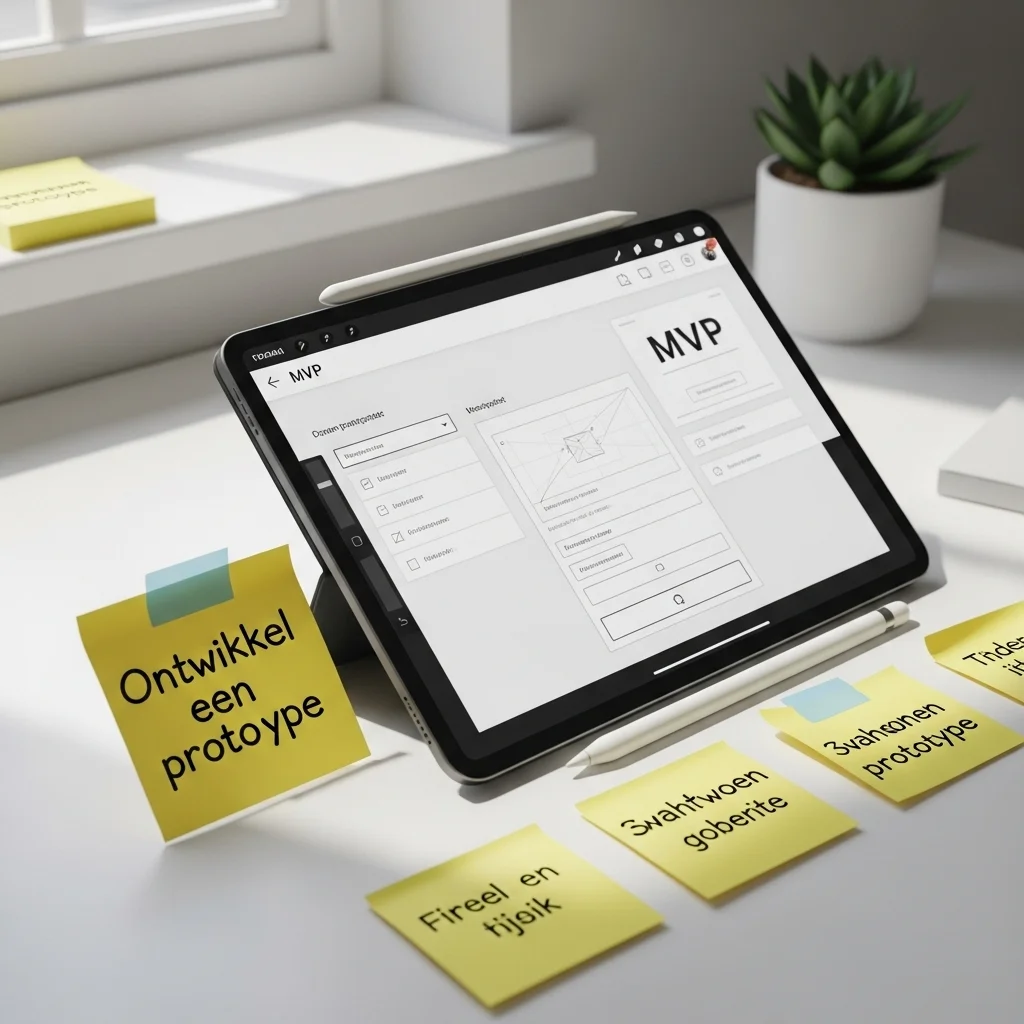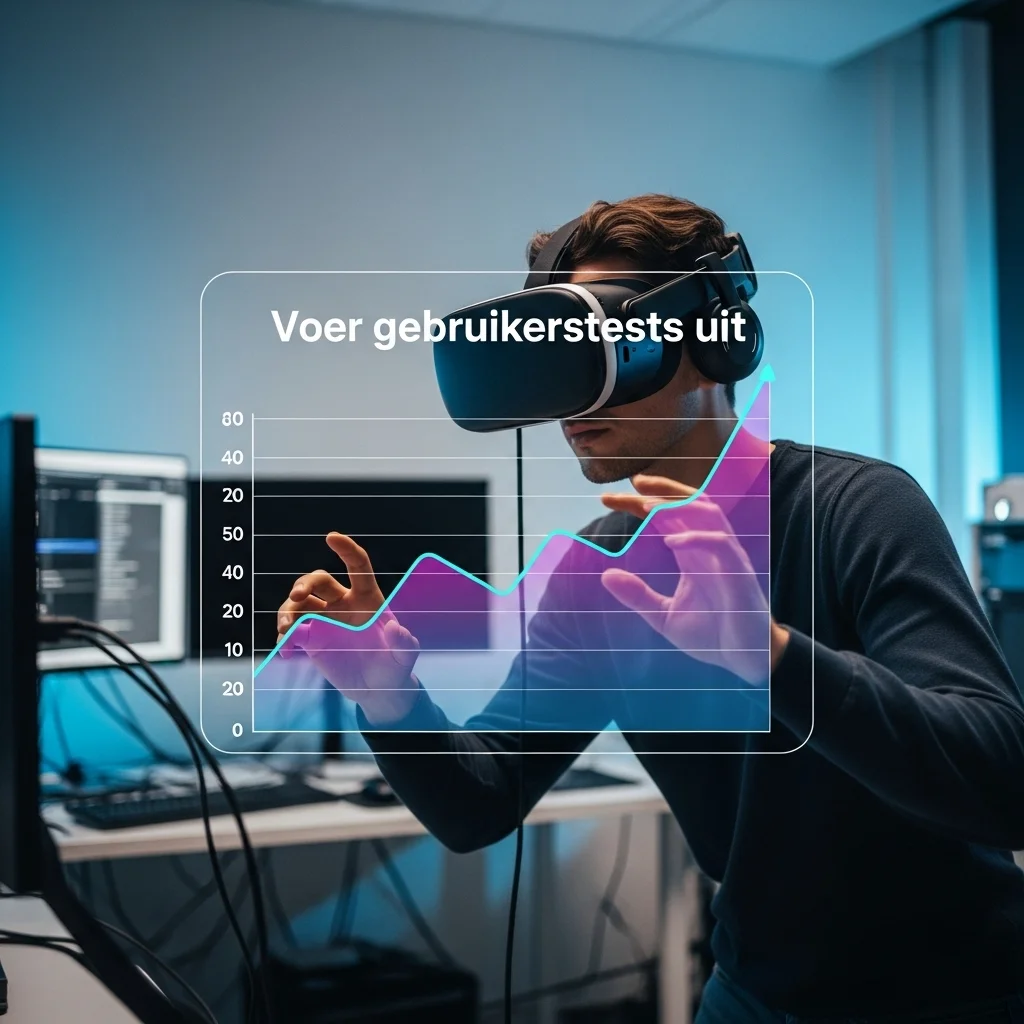The power of bespoke solutions
How bespoke software can transform your business
Flexibility
Bespoke software enables you to address specific business needs without compromise.
Integration
Existing systems can be seamlessly connected to new solutions, increasing efficiency.
Competitive advantage
A unique approach helps you stand out from competitors.

Software Development: The Basics
Software development is an umbrella term. Essentially, it encompasses the process of creating, testing, deploying and maintaining software products that solve specific user problems. Sharing knowledge between developers and end users is crucial. This way, software is created that not only works, but also delivers real value.
Phases of software development
Design: The process begins with a clear inventory. What do you want to achieve? Which features are essential?
Build: This is where the programmer comes into play. The code is written and the application comes to life.
Testing: Crucial for detecting bugs and ensuring the user experience.
Maintenance: After launch the product is never finished. Regular maintenance and updates are necessary.
Bespoke software is not a one-off purchase, but a long-term relationship.
Choosing the right software development company can make all the difference.
How do you start with software development?.
The steps you need to follow

Step 1: Define your goals.
It is important to understand what you want to achieve. This can range from improving customer experience to internal process management. Compile a list of necessary features together with stakeholders.

Step 2: Select a development team.
Choose a team that is not only technically proficient but also understands what makes your business unique. Many development teams work with methodologies such as Agile, which ensures flexibility and rapid delivery.

Step 3: Develop a prototype.
Start with a Minimum Viable Product (MVP). This allows you to obtain quick feedback from end users and make adjustments before launching the full version.

Step 4: Conduct user testing.
Make sure end users are involved in the testing phase. Their input is valuable and can provide crucial insights for improvements.

Step 5: Implement and train.
Once the software is ready, it is time for implementation. Ensure your team is properly trained in using the new software.

Step 6: Plan for maintenance.
The work does not stop after launch. Continue to address bugs, updates and new features based on user feedback.


Ready to elevate your software development?
Let us bring your ideas to life together. Contact us for a no-obligation consultation. We would love to see how we can realise your digital ambitions!

What are the costs of software development?
A frequently asked question
It is difficult to quote an exact figure; the costs of bespoke software depend heavily on complexity and functionality.
Factors that influence the cost
Complexity: The more intricate the software, the higher the cost.
Development time: The time a development team requires plays a major role.
Hourly rate: In the Netherlands, rates range between 100 and 150 euros per hour, depending on the developers' experience.
Examples of costs
A simple mobile application can start from €30,000.
An extensive customer portal can rise to €200,000.
It is important to consider all costs, including long-term maintenance and updates.

How do you choose the right software development company?
Tips for your selection process
When choosing a development partner you need to look beyond price alone.
Look at experience and expertise
Ask for previous projects and case studies. This gives you insight into their skills and the type of software they can develop.
Collaboration and communication
How well does the team communicate? Good collaboration is essential for success.
Flexibility in development
Does the company have experience with Agile working? This is often a good indicator of a flexible approach that matches your needs.

The future of software development
What does the future hold?
The world of software development is changing rapidly. Key trends include:
AI and Machine Learning: More software applications will use artificial intelligence to analyse data and optimise processes.
Cloud-based solutions: An increasing amount of software is offered from the cloud, providing greater flexibility and lower upfront investment.
Low-code platforms: These platforms enable even non-technical users to create software solutions, dramatically reducing time to market.
The future looks promising for companies that invest in bespoke software and continue to innovate in this area.
Frequently asked questions
Practical answers to the questions we hear most often.
💡 What are the most common programming languages in software development?
The most popular programming languages include Python, Java, C#, and JavaScript. Each language has its own characteristics and areas of application.
⏱️ How long does it take to develop bespoke software?
Development time can vary from a few months to years, depending on the software's complexity.
💸 Is bespoke software always more expensive than off-the-shelf solutions?
Bespoke software may be more expensive initially, but in the long run the benefits can offset the difference.
🔄 What is Agile software development?
Agile development is a flexible approach to software development that aims for iterative improvement and close collaboration with the client.
✅ How can you guarantee software quality?
By conducting extensive testing at every stage and integrating user feedback, quality can be greatly improved.
🌐 What is the difference between front-end and back-end development?
Front-end refers to everything the user sees and interacts with, while back-end covers the server, database and application that support the processes.
🛠️ Which tools are used in the software development process?
Popular tools include Git for version control, Jira for project management, and various IDEs such as Visual Studio or IntelliJ.
🆘 What should I do if I have a problem with my software?
Contact the software development team responsible for the application. They can help you resolve issues or provide updates.
📄 Can I receive the source code of my bespoke software?
Yes, in most cases you can receive the source code after project completion; discuss this with the developer in advance.
📊 How can I track the development of my software project?
Regular updates and meetings with the development team give you insight into progress and any issues.










.webp)
